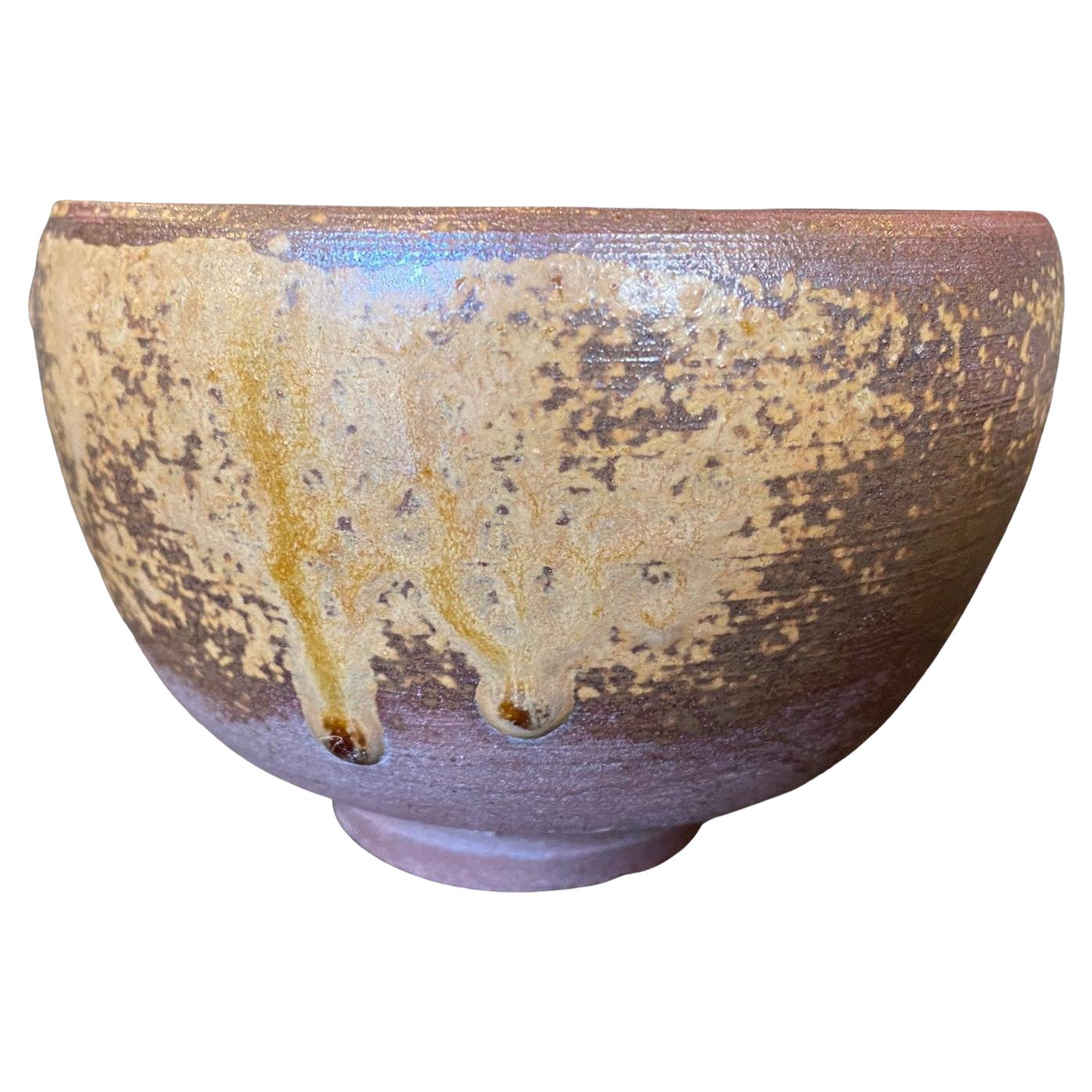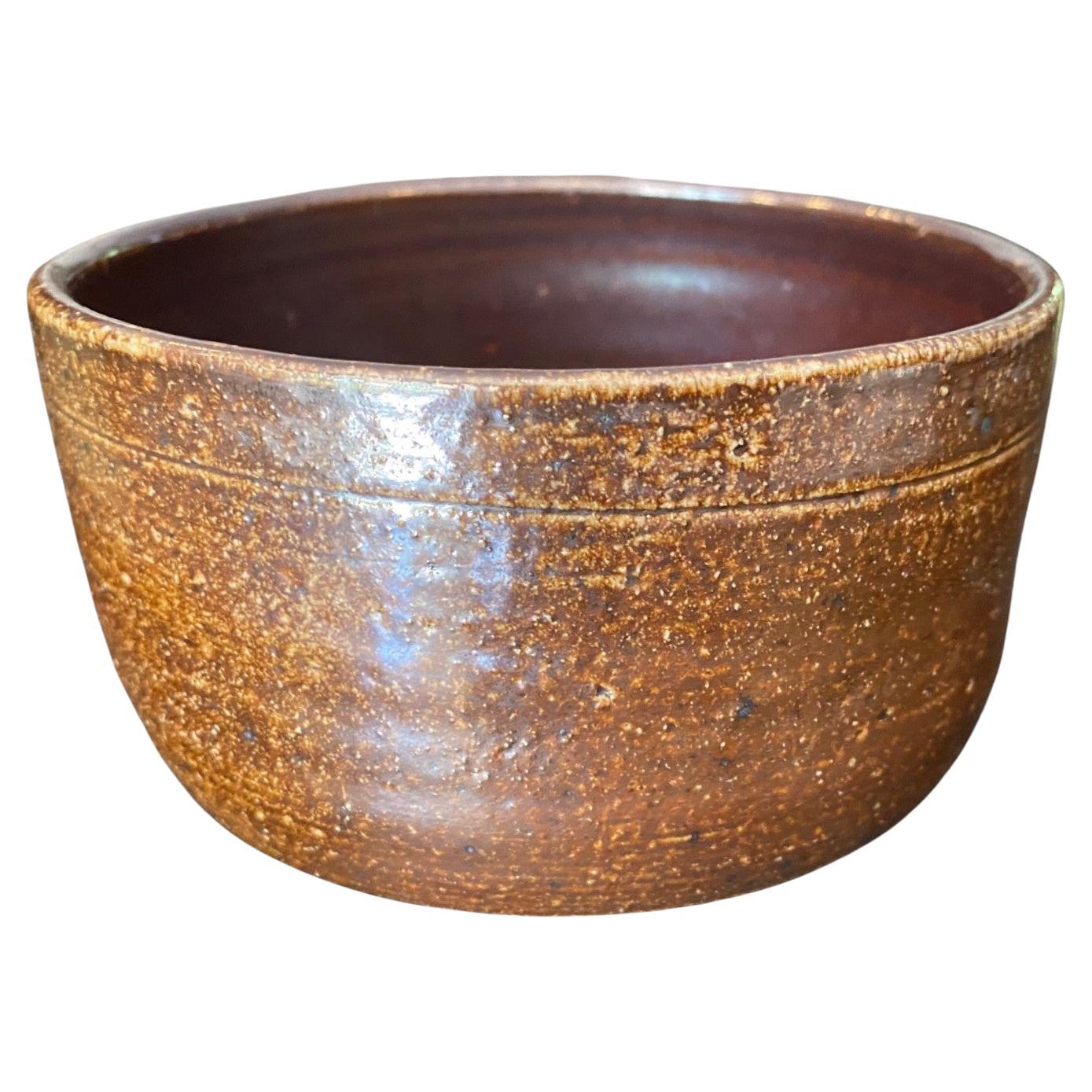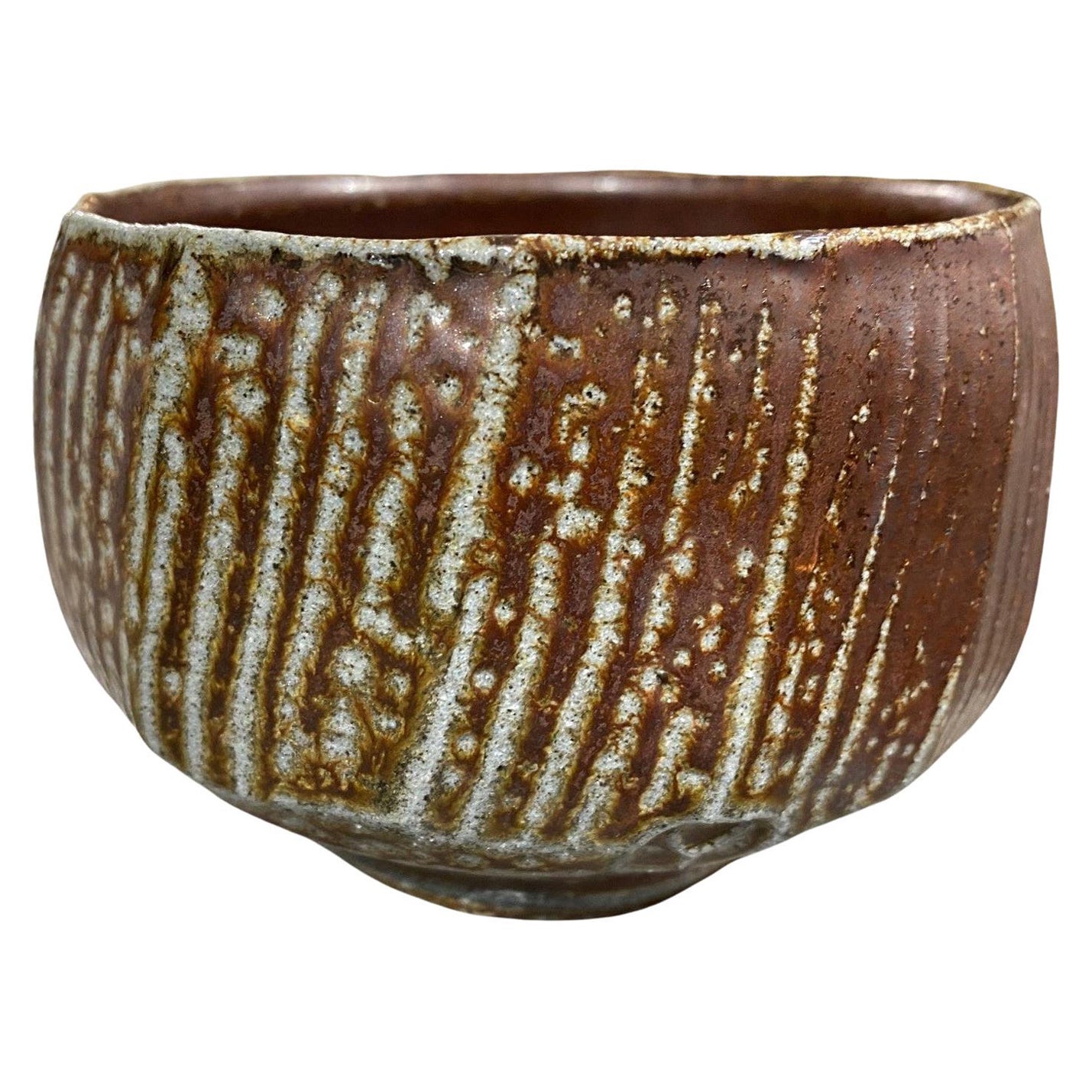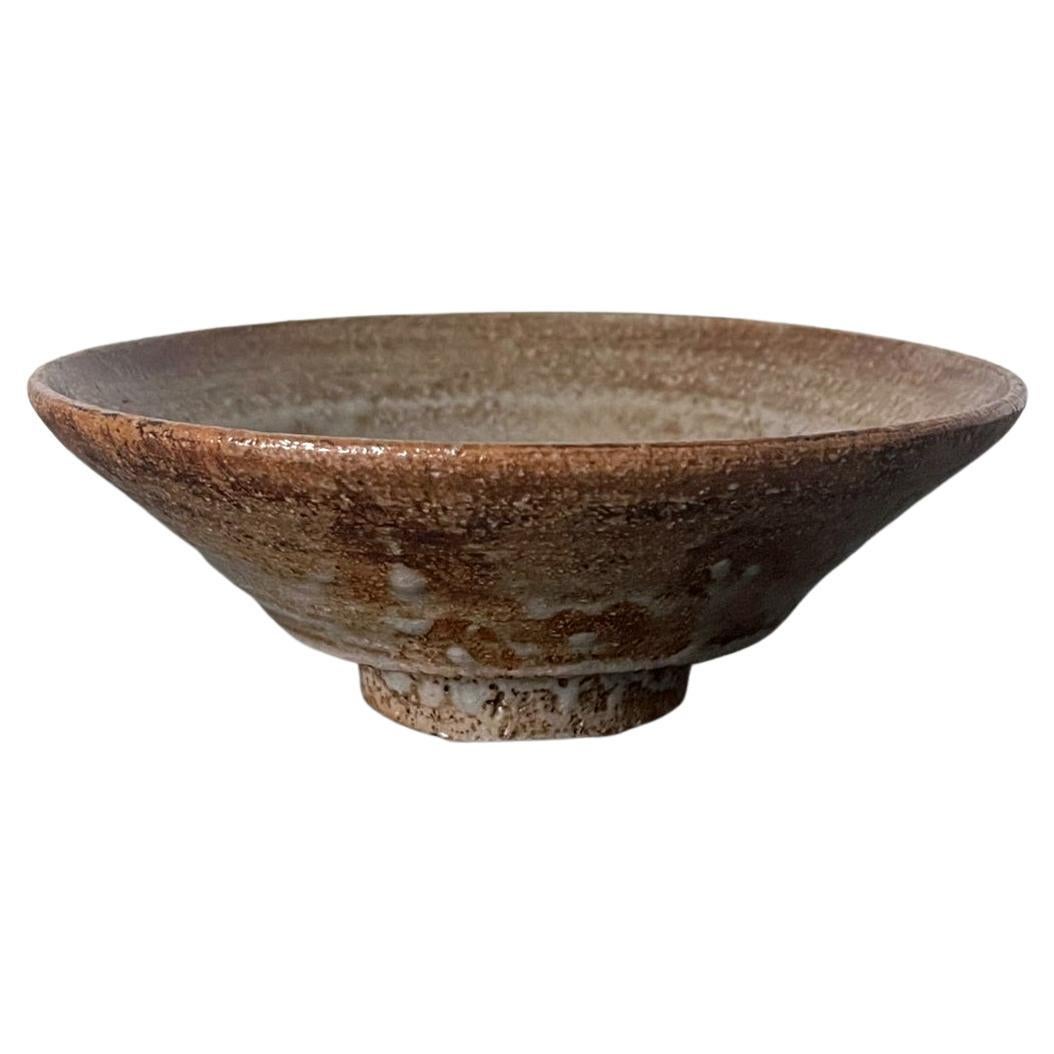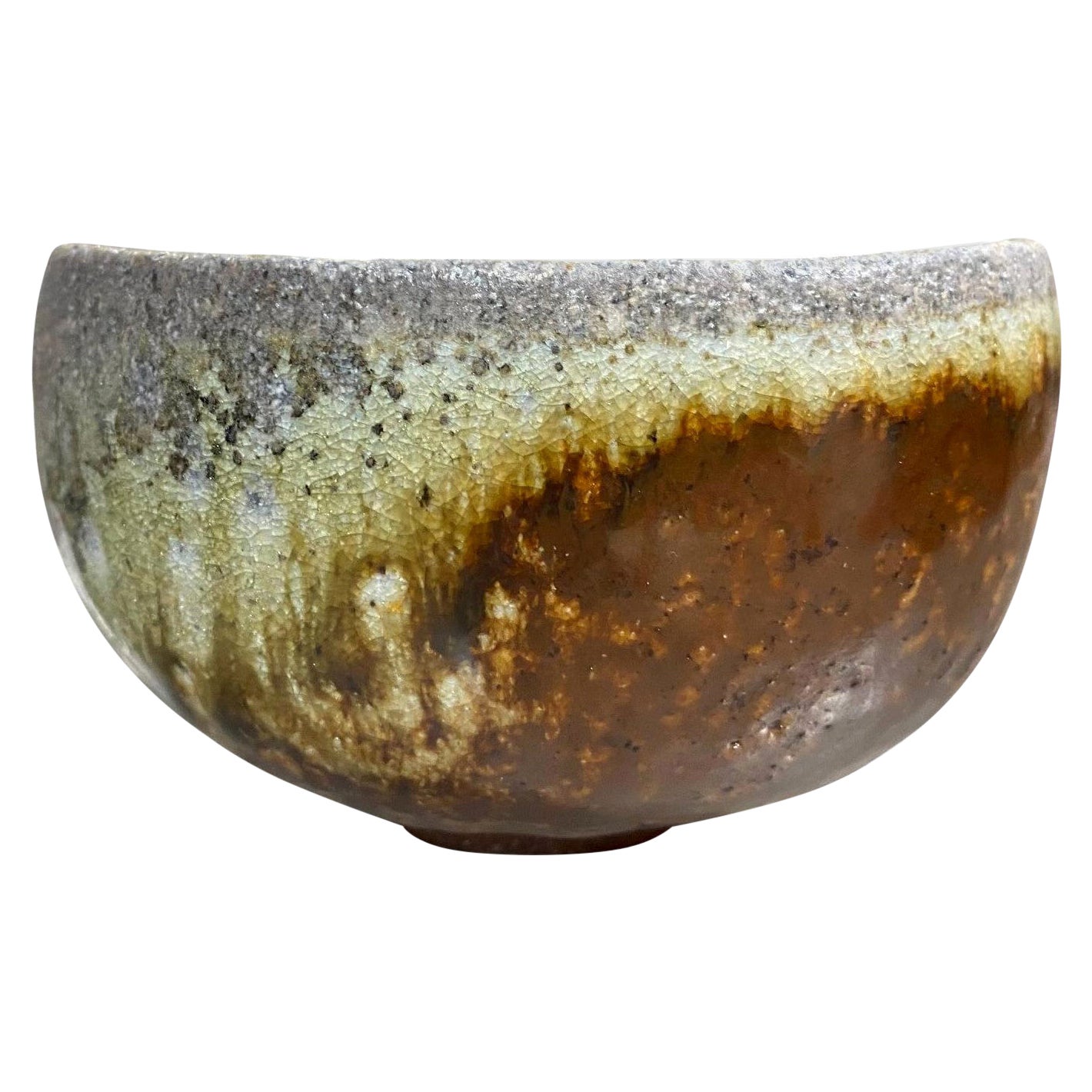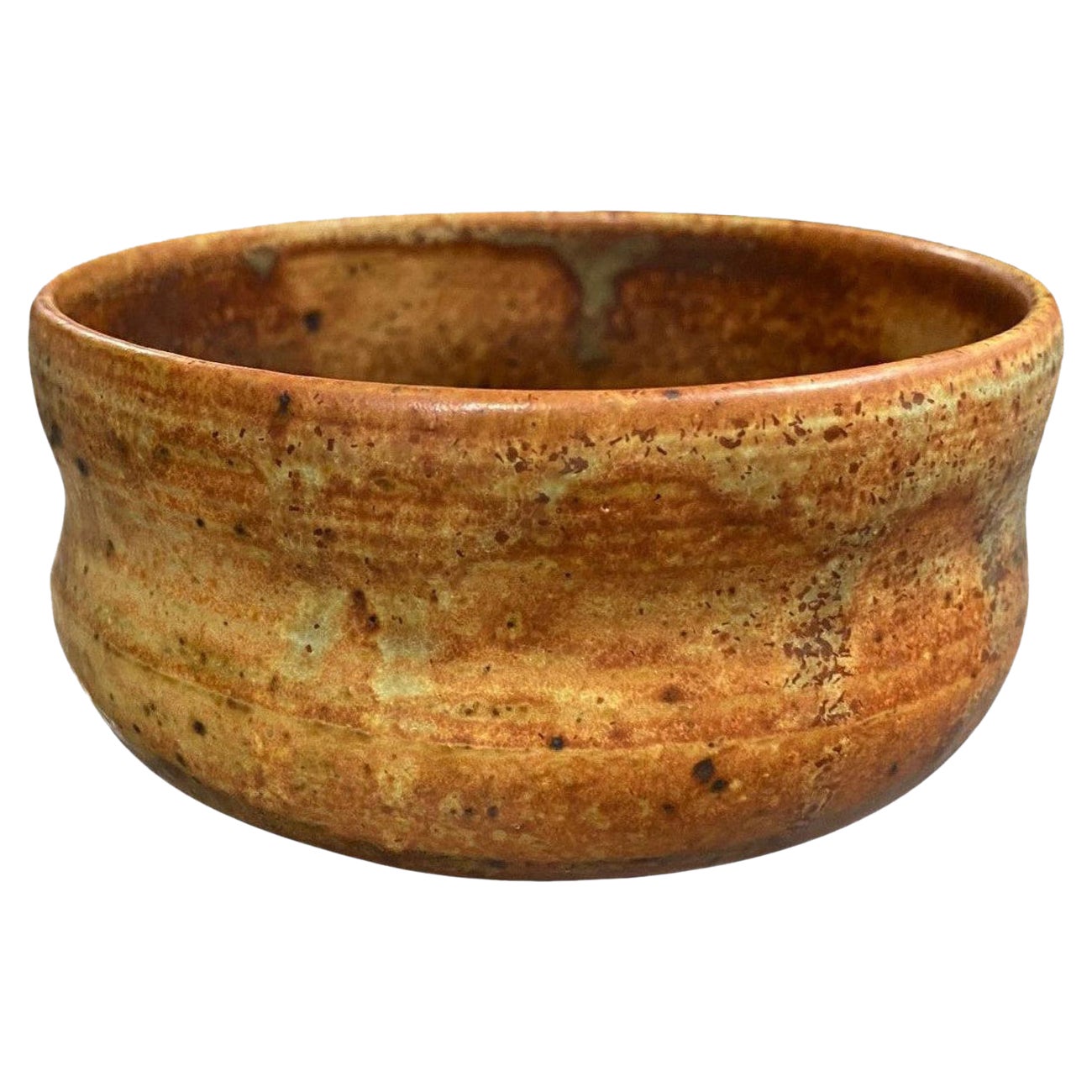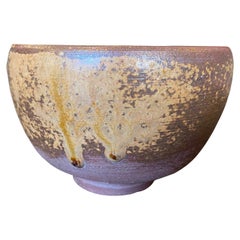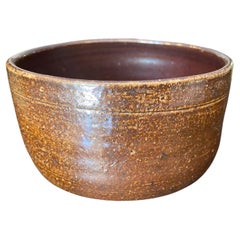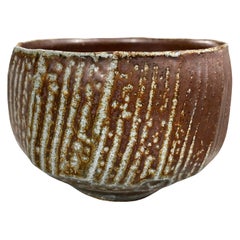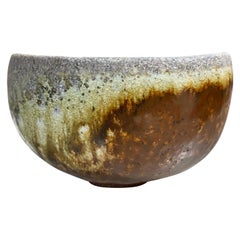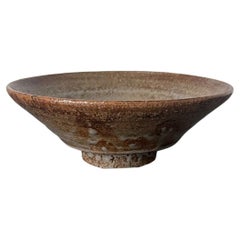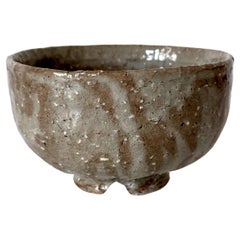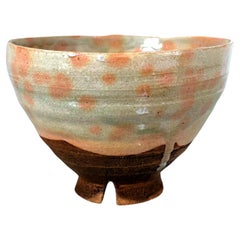Items Similar to Kaneshige Toyo National Treasure Signed Japanese Bizen Pottery Chawan Tea Bowl
Want more images or videos?
Request additional images or videos from the seller
1 of 21
Kaneshige Toyo National Treasure Signed Japanese Bizen Pottery Chawan Tea Bowl
$1,595
£1,219.46
€1,404.57
CA$2,235.08
A$2,495.26
CHF 1,307.48
MX$30,544.45
NOK 16,605
SEK 15,656.41
DKK 10,482.48
Shipping
Retrieving quote...The 1stDibs Promise:
Authenticity Guarantee,
Money-Back Guarantee,
24-Hour Cancellation
About the Item
A beautiful, perfectly shaped antique Bizen ware Chawan tea bowl by renowned Japanese master potter/artist Kaneshige Toyo (1896-1967) featuring a unique natural, organic forming ash glaze. Kaneshige is universally considered to be the founder of modern Bizen pottery.
In 1956, Kaneshige was certified as a Living National Treasure (Important Intangible Cultural Heritage) for his work in Bizen Ware pottery/ceramics. Bizen Ware is a type of Japanese pottery traditionally from the Bizen province, presently a part of the Okayama prefecture. It is considered one of the Six Ancient Japanese Kilns (along with Echizen ware, Seto ware, Shigaraki ware, Tamba ware, and Tokoname ware).
The piece is signed/ sealed on the base with one of Kaneshige's traditional incised marks.
A rather engaging and scarce work. Would be a fantastic addition to any Japanese/Asian pottery or Bizen Ware collection or eye-catching stand-alone work in about any setting.
Kaneshige's work can be found in numerous prominent collections and museums including:
Aichi Prefectural Ceramic Museum, Seto, Japan
Brooklyn Museum, NY
Hagi Uragami Museum, Yamaguchi, Japan
Honolulu Art Museum, HI
Ibaraki Ceramic Art Museum, Kasama, Japan
Indiana Art Museum, Bloomington, IN
Ishikawa Prefectural Museum of Art, Kanazawa, Japan
Kano Museum, Aki, Japan
Menard Art Museum, Komaki, Japan
Mt. Holyoke College Art Museum, South Hadley, MA
National Museum of Modern Art, Kyoto, Japan
National Museum of Modern Art, Tokyo, Japan
National Treasures Museum, Yugawara, Japan
Nelson-Atkins Museum of Art, Kansas City, MO
Okayama Prefectural Museum of Art, Japan
Samuel P. Harn Museum of Art, Gainesville, FL
University of Michigan Museum of Art, Ann Arbor, MI
Yale University Art Gallery, New Haven, CT
The work comes with a wood storage box.
Storage box dimensions: 4.7" high, 6" wide. 6" deep
Tea bowl dimensions: 2.75" high, 5.1" wide, 5.1" deep.
- Dimensions:Height: 4.75 in (12.07 cm)Width: 6 in (15.24 cm)Depth: 6 in (15.24 cm)
- Style:Showa (Of the Period)
- Materials and Techniques:
- Place of Origin:
- Period:
- Date of Manufacture:Mid-20th Century
- Condition:In very good to excellent vintage condition with no discernable flaws, cracks, chips, etc... and light if any wear consistent with age and use (please see photos). Beautiful and special overall.
- Seller Location:Studio City, CA
- Reference Number:1stDibs: LU2254333877672
About the Seller
5.0
Platinum Seller
Premium sellers with a 4.7+ rating and 24-hour response times
1stDibs seller since 2016
908 sales on 1stDibs
Typical response time: <1 hour
- ShippingRetrieving quote...Shipping from: Van Nuys, CA
- Return Policy
Authenticity Guarantee
In the unlikely event there’s an issue with an item’s authenticity, contact us within 1 year for a full refund. DetailsMoney-Back Guarantee
If your item is not as described, is damaged in transit, or does not arrive, contact us within 7 days for a full refund. Details24-Hour Cancellation
You have a 24-hour grace period in which to reconsider your purchase, with no questions asked.Vetted Professional Sellers
Our world-class sellers must adhere to strict standards for service and quality, maintaining the integrity of our listings.Price-Match Guarantee
If you find that a seller listed the same item for a lower price elsewhere, we’ll match it.Trusted Global Delivery
Our best-in-class carrier network provides specialized shipping options worldwide, including custom delivery.More From This Seller
View AllKaneshige Toyo Japanese National Treasure Signed Bizen Pottery Chawan Tea Bowl
Located in Studio City, CA
A beautiful, perfectly shaped antique Bizen ware Chawan tea bowl by renowned Japanese master potter/artist Kaneshige Toyo (1896-1967) featuring a unique one of a kind, natural, organic forming ash glaze. Kaneshige is universally considered to be the founder of modern Bizen Yaki Ware pottery.
In 1956, Kaneshige was certified as a Living National Treasure (Important Intangible Cultural Heritage) for his work in Bizen Ware pottery/ceramics. Bizen Ware is a type of Japanese pottery traditionally from the Bizen province, presently a part of the Okayama prefecture. It is considered one of the Six Ancient Japanese Kilns (along with Echizen ware, Seto ware, Shigaraki ware, Tamba ware, and Tokoname ware).
The piece is signed on the base with one of Kaneshige's traditional incised marks (fundo weight mark of Toyo) .
The work also comes with the original Toyo Kaneshige...
Category
Mid-20th Century Japanese Showa Ceramics
Materials
Pottery, Stoneware
Japanese Asian Bizen Yaki Ware Wabi-Sabi Studio Pottery Chawan Tea Bowl
Located in Studio City, CA
A wonderful and well crafted Japanese artisan Bizen ware Chawan tea bowl. Beautifully fired and colored with a touch of natural ash glaze.
Japanese Bizen-Yaki pottery which dates ba...
Category
20th Century Japanese Showa Ceramics
Materials
Pottery, Stoneware
Japanese Asian Style Signed Studio Pottery Wabi-Sabi Ceramic Chawan Tea Bowl
Located in Studio City, CA
A stunning Japanese Asian-influenced stoneware Studio Pottery Chawan tea bowl that features a beautiful dark rich glaze with wonderful shifts in pattern and texture.
This particula...
Category
20th Century Japanese Showa Ceramics
Materials
Stoneware
Japanese Asian Signed Studio Pottery Wabi-Sabi Ceramic Glazed Chawan Tea Bowl
Located in Studio City, CA
A stunning Japanese stoneware studio pottery chawan tea bowl that features a beautiful, heavy and sumptuously multi-glaze with wonderful shifts in color and texture. This bowl is wit...
Category
20th Century Japanese Showa Ceramics
Materials
Stoneware
Japanese Asian Signed Studio Pottery Wabi-Sabi Ceramic Glazed Chawan Tea Bowl
Located in Studio City, CA
A gorgeous Japanese studio pottery chawan tea bowl that features a wonderful reddish-orange glaze with various shifts in colour and texture.
This particular piece encompasses the...
Category
20th Century Japanese Showa Ceramics
Materials
Earthenware
Shinbei Sakakura X (10th) Japanese Hagi Yaki Ware Pottery Chawan Tea Bowl & Box
Located in Studio City, CA
A wonderfully hand crafted and beautifully glazed Hagi Yaki Ware Chawan tea bowl by the 10th Shinbei Sakakura (X). This piece has quite a special feel to it. The Chawan radiates i...
Category
Antique Mid-19th Century Japanese Edo Ceramics
Materials
Pottery, Stoneware
You May Also Like
Korean Ceramic Chawan Ido Tea Bowl with Soba Glaze Kuroda Touen
Located in Atlanta, GA
This ceramic chawan (tea bowl) was made in Korea during Joseon dynasty circa 18th to early 19th century. The bowl was of a "Small Ido" form with half-he...
Category
Antique Late 18th Century Korean Other Ceramics
Materials
Ceramic
Japanese Glazed Mino Tea Bowl Chawan Showa Period Ex-Musuem
Located in Atlanta, GA
A Japanese glazed ceramic tea bowl (chawan) in Gohon style likely made in Showa period of 20th century. Supported by a short foot ring with a notch, the bowl was made from coarse cla...
Category
Early 20th Century Japanese Meiji Ceramics
Materials
Ceramic
Japanese Glazed Ceramic Gohon Chawan Tea Bowl
Located in Atlanta, GA
A bespoken Japanese ceramic glazed tea bowl with fabric insert, pouch and original padded wood tomobako box. The chawan has a slightly irregular wall supported by a high notched foot...
Category
Antique 19th Century Japanese Meiji Ceramics
Materials
Ceramic
Chinese Jian Ware Style Signed Haresfur Pottery Teabowl with Gilded Rim
Located in Bishop's Stortford, Hertfordshire
A very impressive and stylish Chinese haresfur glazed pottery tea bowl in the Jian Ware style, signed to the base, and believe to date from the 20th century....
Category
20th Century Chinese Chinese Export Ceramics
Materials
Metal
Japanese Shino Chawan Tea Bowl Edo Period
Located in Atlanta, GA
A Japanese ceramic Chawan (tea bowl) of e-Shino (painted Shino) ware style circa mid-late 18th century Edo period. The classically shaped bowl features an abstract blue paint of blue grass and displays strong characters in the milky white glaze, with overall crawling and crackling effect. One of the most distinctive characteristics of Shino that is exemplified on this bowl is the small pinholes called suana, which tea masters favor (termed as yuzuhada, or citron skin). The milky-white feldspar...
Category
Antique Late 18th Century Edo Ceramics
Materials
Ceramic
Antique Japanese Shino Ware Chawan Tea Bowl
Located in Atlanta, GA
On offer is a Japanese ceramic tea bowl (chawan) used in the traditional chado ceremony. The bowl was potted in clog form with a ring foot shaved extremely low. Its size and harmonious proportion make it perfect to be held in both hands during chado. Classified as shino ware...
Category
Antique 18th Century Japanese Edo Ceramics
Materials
Ceramic
More Ways To Browse
Treasure Craft
Ancient Japanese
Japanese Wood Sign
Signed Artist Bowl
Kiln Japanese
Mid Century Japanese Ceramics
Midcentury Japanese Ceramics
Japanese Stoneware
Signed Japanese Pottery
Japanese Ash
Ancient Seals
Furniture Kansas City
Used Furniture New Haven
Wood Fired Pottery
Pottery Bowl Japan
Japanese Bowl Signed
Potters Stand
Pottery Mid Century Japanese
